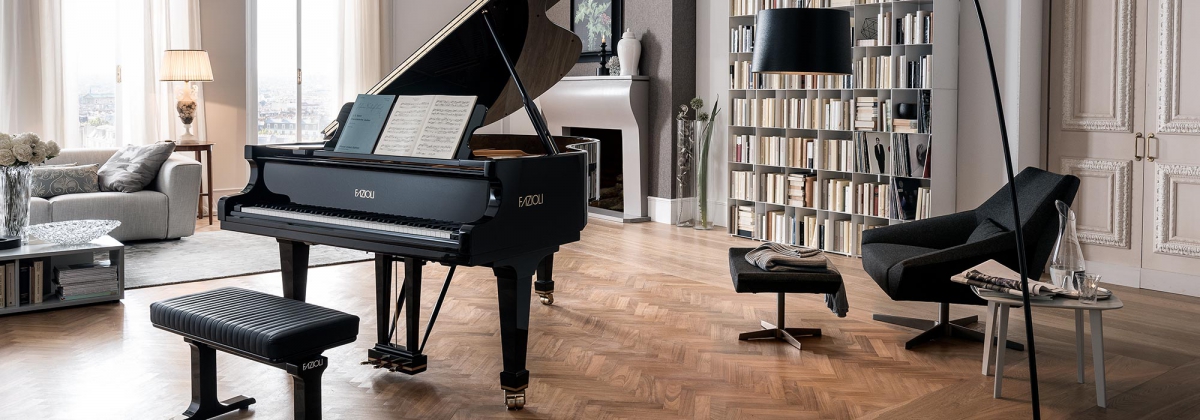
Wood is a natural, living material, which reacts to the changes in temperature and humidity of the surrounding environment. Since the piano mainly consists of wood, it is preferable to place it in rooms where temperature and humidity levels do not fluctuate too drastically. If relative humidity is higher than suggested levels (as is the case in humid regions, especially during transitions between seasons and the summer months), we recommend using a common dehumidifier which is easily available. Humidity levels should never be lower than 30% or higher than 70%.
If relative humidity is too low, as is the case in heated rooms during the winter months, we recommend using a common humidifier, again easily available on the market. The piano should never be left in a dry room. We suggest positioning your piano far from windows and external walls. In order to avoid damage to the instrument, we suggest that you should not keep the piano under direct sunlight. We also suggest that you do not place any objects on the piano as this may cause vibrations. Please note that should any liquid fall on the piano you might risk serious damage.
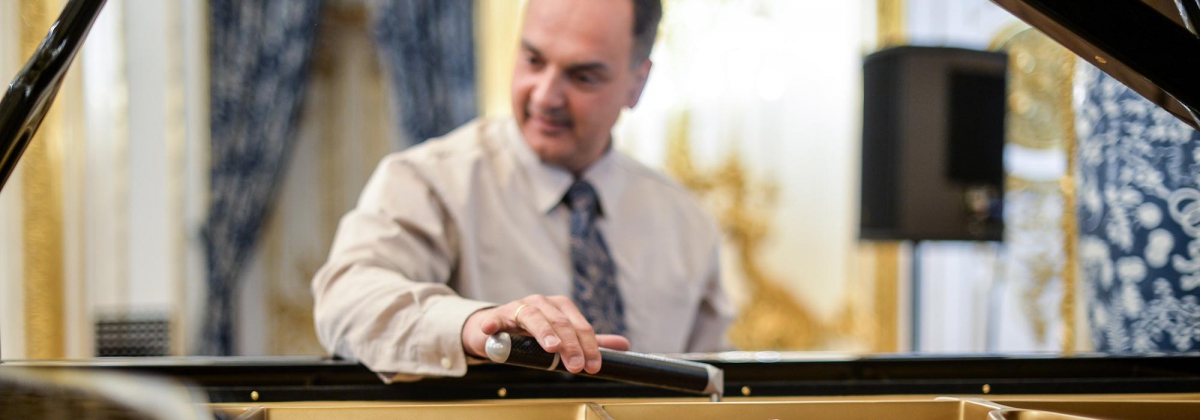
Purchasing a piano represents a long-term investment; maintaining it in optimal conditions is of paramount importance for helping maintain the value of your instrument over time. The lifespan of your piano greatly depends on the quality of its maintenance. Routine maintenance should only be entrusted to an officially certified technician.
There are three determining factors influencing the acoustics and functional qualities of a piano:
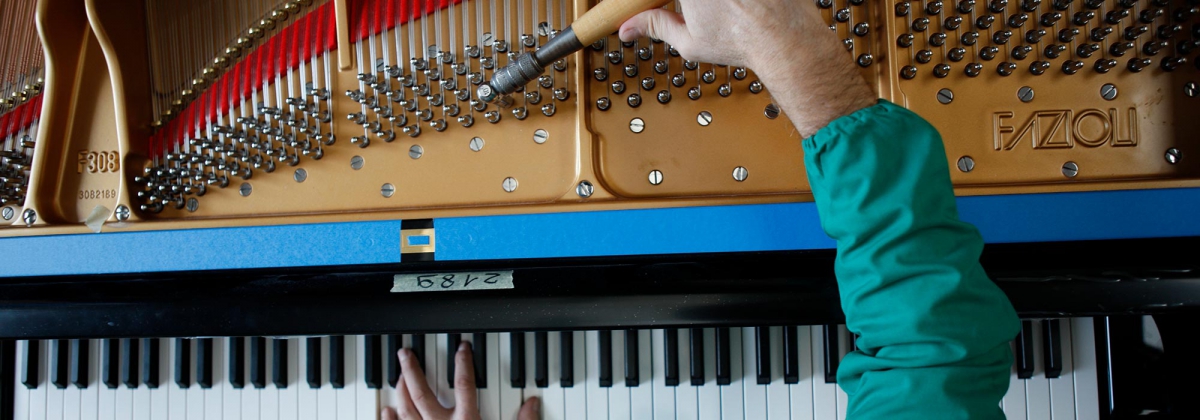
The human hear can adjust so easily to different sound conditions, that it is often difficult to understand when an instrument is “out of tune”. The tuning of a piano varies according to a gradual process to which our ears become accustomed. Human hearing is unable to perceive slight frequency alterations, especially if these changes occur in all registers. If the tuning is not carried out regularly, the education of the ear can be heavily affected, just as the conditions of the instrument itself. The tuning frequency varies according to the usage made of the instrument, both in terms of time and intensity. In any case, it is always advisable to call one’s own trusted technician no less than twice a year.
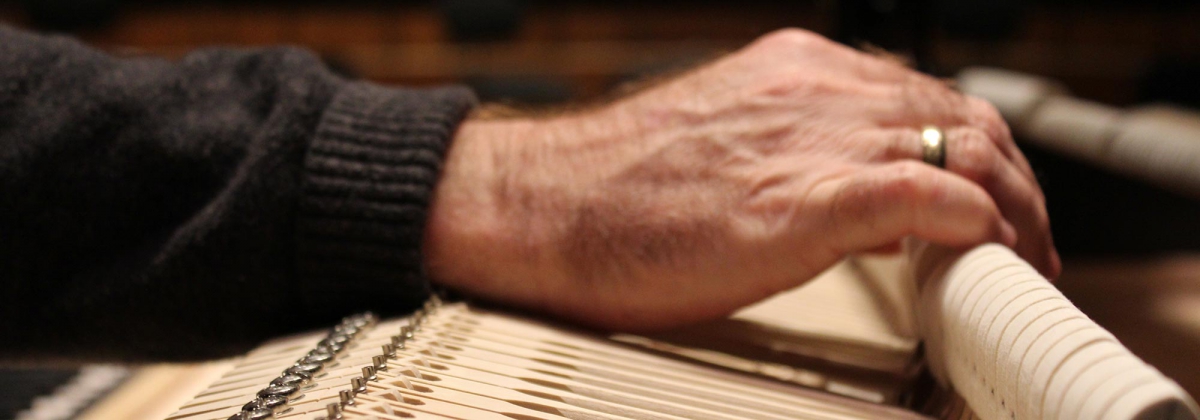
As you do not play each note the same number of times, the keyboard and action are subject to uneven wear, which brings about slight alterations in the response of the action itself. Maintaining a well-regulated action is essential to preserving a fine touch and tone. Well-regulated actions and keyboards are essential for the reliability of the performance. You should therefore ask your technician to carry out an action regulation at least once a year, as to rebalance these normal slight response alterations of the keyboard.
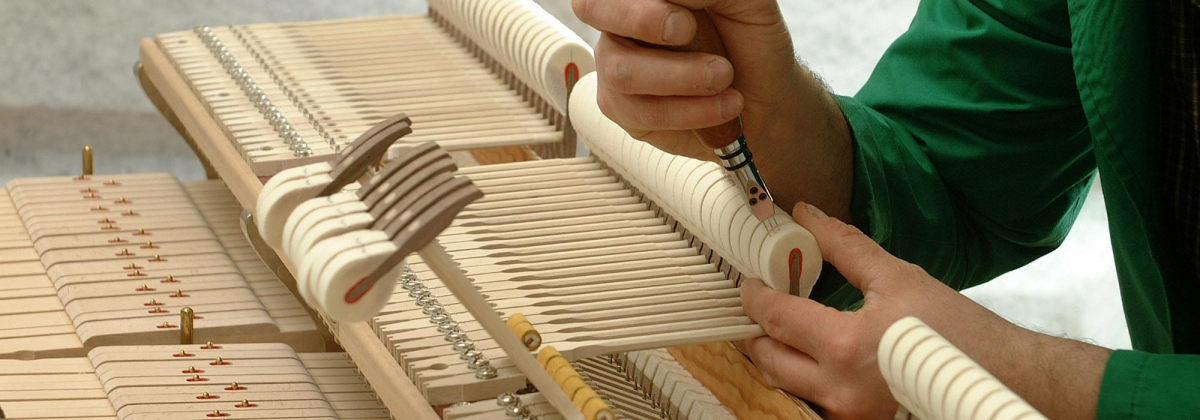
It’s the technique used by the technician to vary the density of the felt on the hammerhead, which greatly affects the tone quality of the piano, by means of a three-needled tool. In fact, the hammerheads tend to harden unevenly because of normal wear and climate variations. A suitably qualified technician will re-establish the evenness and beauty of tone by pricking the surface of the felt. For the above-mentioned reasons, even if your piano is rarely played, we recommend the following:
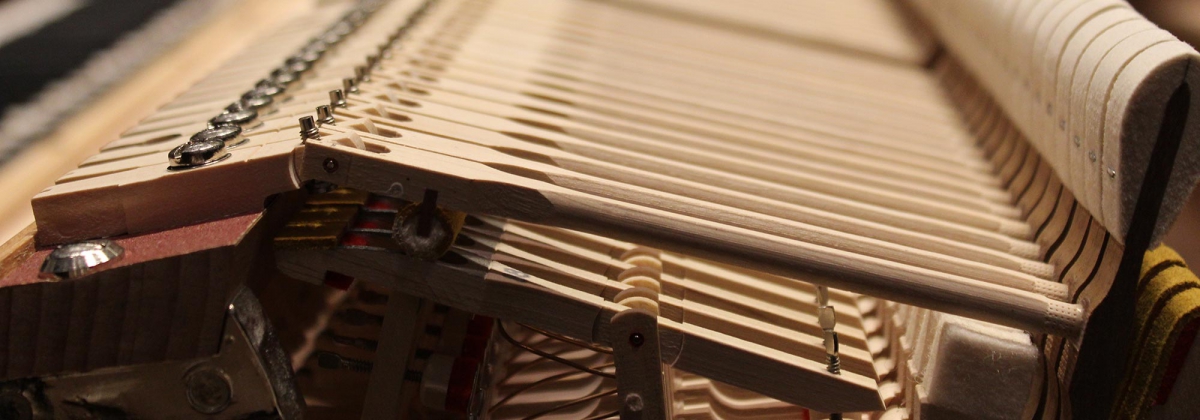
The various piano components can be finished and treated in different ways. As a consequence, the care of these surfaces is diversified and must be carried out with the utmost attention. To clean matt surfaces, we recommend using a slightly moistened soft cloth with non-abrasive detergent (without any kind of solvent) applied with slight pressure in clockwise motion. To clean high-gloss surfaces, we recommend dusting them using a slightly moistened soft cloth with non-abrasive detergent. Do not under any circumstances use any type of abrasive detergent. Metal parts need maintenance as well. The hinges and screws are plated with 24K-gold and tend to develop a dust film, which can be removed with a slightly moistened soft cloth moistened with non-abrasive detergent. In order to remove oxidation from the brass Fazioli logo and pedals, we suggest using common non-abrasive deoxidizing creams, which can be easily found on the market (Sidol or similar products). To clean the keyboard, we recommend using a slightly moistened soft cloth with non-abrasive detergent. It is important to avoid moistening the sides of the keys.
To know more about how to clean and sanitize the keyboard of your Fazioli piano, click here.
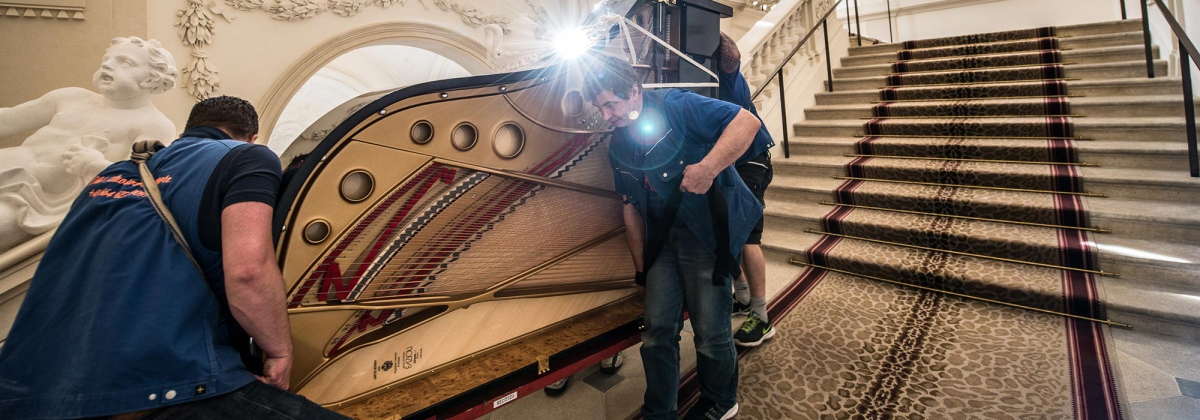
In case you need to move your piano, we recommend calling a specialized firm. The use of unqualified personnel can be risky, since moving errors can cause serious damage to the instrument.